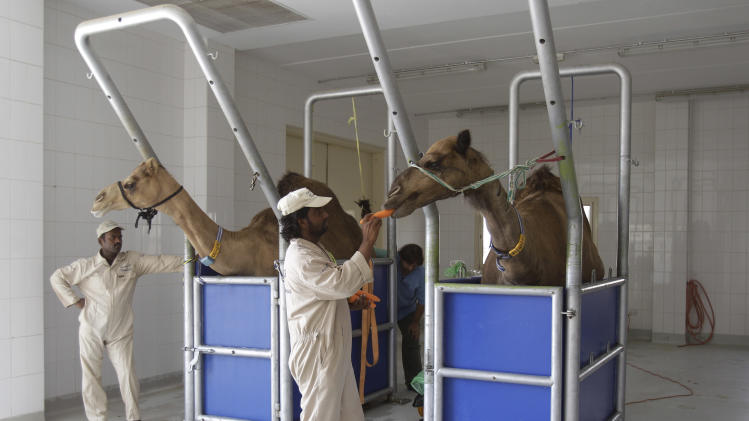
A new study suggests that camels are the major source of the Middle East Respiratory Syndrome, or MERS, a viral disease that has sickened 182 people and killed 79 of them since it was first detected in Saudi Arabia in 2012.
The animals are most likely to infect people through respiratory secretions — from coughing, sneezing, snorting or spitting — that travel through the air or cling to surfaces.
People with chronic illnesses like diabetes, lung disease or kidney failure, or other conditions that weaken their immunity, seem to be most susceptible, and should avoid close contact with camels, researchers say.
Saudi Arabia has had the most cases, other Middle Eastern countries have had a few and a handful of travelers from that region have taken the disease to Europe. There have been no cases in the United States. Although people have infected one another, the disease is not highly transmissible among humans, so researchers say that unless the virus changes to become more contagious in people, the risk of global spread does not seem high.
The new study provides the first evidence that the virus is widespread in dromedary camels (the kind with one hump) in Saudi Arabia, and has been for at least 20 years.
Younger animals are more likely than older ones to be infected and contagious. The virus invades the camels’ nose and respiratory tract, but does not kill them. It is not known whether it even makes them sick.
“It would be very difficult to know if they were ill, since these are creatures that slobber a great deal,” said Dr. W. Ian Lipkin, the senior author of the study and a virus expert at Columbia University’s Mailman School of Public Health in New York.
Genetically, the virus found in camels matches samples from infected humans.
The disease was not detected in people until 2012. It is not known whether the cases in humans are a new phenomenon, or whether they have been occurring but were not recognized. Some people develop mild respiratory infections, but in others the disease turns deadly, with worsening fever, cough and shortness of breath.
In some cases, patients were known to have been around camels, but until recently it was not clear whether the animals might be the source. Other cases have been complete mysteries, with no known exposure to animals or ill humans. Sick people have infected family members, health workers and nearby patients in the hospital, but the virus is not considered highly contagious among humans.
Researchers do not know how camels become infected, but they suspect that the virus may have originally come from bats. MERS belongs to the coronavirus family, like SARS, the deadly and more contagious respiratory infection that began in China and caused a global outbreak in 2003. Bats are a host for SARS and other coronaviruses, and studies have found evidence linking MERS to bats.
Source: The New York Times


